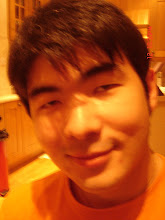
The comparisons between the protests now happening in Iran and the June 4th 1989 Tiananmen Square Massacre deserve a fuller recounting of what happened in China twenty years ago. The world was flush with democracy, hot off the heels of the Soviet Union's impending collapse. Chinese students and intellectuals were mourning the death of a democratically-inclined reformer Hu Yaobang. The mourning sparked off angry protests since prior to his death Yaobang had been disgraced and compelled to engage in a humiliating bout of "self-criticism" for his views.
The protests were huge, seeing over 1 million people in Tiananmen Square at one point, and happened over a long time period, starting in April and ending on June 4th. It was an enormous movement, and encompassed workers nation-wide as well as the middle classes thronging in Tiananmen Square. Everyone was convinced that the world was going to see the collapse of Chinese communism as well as Soviet communism that year. But they didn't. After prevaricating for a while and offering some cosmetic concessions and reforms, Jiang Zemin, the Chief of the Military, ordered the army to put down the revolt and "clear" Tiananmen Square by 6am on June 4th. They were done with 20 minutes to spare.

One of the most terrifying aspects of what the Chinese government did on June 4th, was and is the total censorship of any details pertaining to the protests. On June 4th 2007, the Chengdu Evening News printed a notice "Paying tribute to the strong-willed mothers of the June 4th victims". The government cracked down and three editors were sacked. What's most disturbing about this, though, is that the clerk who approved the notice only did so because he was totally unaware that anything significant had happened on June 4th, and assumed it was pertaining to some mining disaster.
I could go on to write a lof of stuff on how criminal any state control of information and congregation is, and how basic and essential freedom of information and the right to congregate are to human beings, but unsurprisingly, Star Trek: The Next Generation says it better: the renowned episode "The Best of Both Worlds", aired one year after the massacre in 1990, referenced "The USS Tiananmen Square" as one of the many Starfleet ships destroyed by the unstoppable Borg cube (read: unstoppable Chinese authoritarianism) at the famous Battle at Wolf 359. Awesome.




1 comments:
A few considerations:
Jiang Zemin was a major beneficiary of the crackdown in Tiananmen Square, however, to argue that he was responsible for giving the all-clear, as your post suggests, is misleading. Deng Xiaoping, it appears, had the final say and effectively stepped in to buttress Li Peng and co. in the face of popular dissatisfaction. Jiang, I would argue, merely took the opportunity to consolidate his position as Deng's heir apparent. Not supporting the crackdown would, in effect, have put Jiang in a politically untenable position which, given the importance associated with smooth succession in the CCP, was probably not the best idea after the fall of the Soviet Union.
Note also that the Tiananmen square massacre fits quite well into what Mitter describes as the May 4th reformist spirit which has been bandied back and forth in Chinese intellectual circles since 1919. As in the 1968 Paris protests, there is the danger of mythologising what was effectively the convergence of disparate social and economic interest groups. An interesting point of comparison would have been the Cultural Revolution which, interestingly, coincided with many of the student agitations in Europe and which, unlike Tiananmen, was co-opted by Mao to restore his credibility following the Great Leap Forward.
No such co-option took place at Tiananmen, though some have suggested that Zhao Zhiyang was prepared to ride the wave. Chinese politics are far too opaque to permit a reasonably clear judgement on this matter, but if you have any interest in this rather convoluted matter beyond the journalistic, I would suggest you take a look at Zhao's recently published memoirs.
Post a Comment